Inspired by Scott, I thought readers might be interested to know some of the books that I read during 2019, and my thoughts about them.
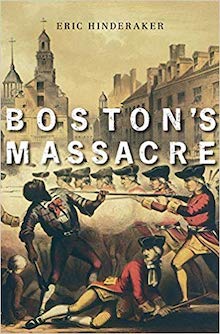 My brother Eric is a historian. I will start with his latest book, Boston’s Massacre, which was published in the Spring. It is about the Boston Massacre, the events that led up to it, and the place of the “massacre” in popular memory. Reading it raised the disquieting conviction that had I been living at the time, I likely would have been a Loyalist. Eric is a very good writer, and I recommend his book.
My brother Eric is a historian. I will start with his latest book, Boston’s Massacre, which was published in the Spring. It is about the Boston Massacre, the events that led up to it, and the place of the “massacre” in popular memory. Reading it raised the disquieting conviction that had I been living at the time, I likely would have been a Loyalist. Eric is a very good writer, and I recommend his book.
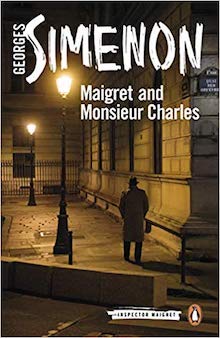 My oldest friend–I believe we have been friends since I was six years old–is one of the top experts I know on crime fiction. Years ago, he told me that his favorite crime/mystery novels are the Maigret series by Georges Simenon. I started reading them a few years ago. They are short, almost novellas, but on the other hand there are 87 of them, so it takes a while to get through them all. I read nine Maigret novels in 2019, and still have quite a few to go. I recommend them. I am not much of a Francophile, but Simenon’s books offer an interesting, and positive, view of France during the first half of the 20th century. Among other things, they offer one of the better portraits of a happy marriage in all of literature.
My oldest friend–I believe we have been friends since I was six years old–is one of the top experts I know on crime fiction. Years ago, he told me that his favorite crime/mystery novels are the Maigret series by Georges Simenon. I started reading them a few years ago. They are short, almost novellas, but on the other hand there are 87 of them, so it takes a while to get through them all. I read nine Maigret novels in 2019, and still have quite a few to go. I recommend them. I am not much of a Francophile, but Simenon’s books offer an interesting, and positive, view of France during the first half of the 20th century. Among other things, they offer one of the better portraits of a happy marriage in all of literature.
Staying with the crime theme, I read all of the Sherlock Holmes stories when I was young, but hadn’t returned to them for many years. A couple of weeks ago, I decided to re-read them, and have now read The Adventures of Sherlock Holmes and The Memoirs of Sherlock Holmes. The short stories are amazingly good. It is easy to understand why Londoners eagerly awaited the next story in each issue of The Strand. The prose is clear, the stories flow, Holmes’s deductions are as startling and yet inevitable–why didn’t I think of that?–as they were 125 years ago. It has been said that Sherlock Holmes and Dr. John Watson are the two most famous characters in literature, and that may well be true. It is certain, in any event, that the Holmes stories offer one of the best windows into high Victorian England.
I don’t read a lot of books about current events, mostly because it seems like a busman’s holiday. I read for fun. But this year I did read Heather Mac Donald’s The Diversity Delusion, Kim Strassel’s Resistance (At All Costs): How Trump Haters Are Breaking America, and Andy McCarthy’s Ball of Collusion: The Plot to Rig an Election and Destroy a Presidency. In each case, it was because my organization, Center of the American Experiment, hosted Heather, Kim and Andy as a speaker for one of our events, and I interviewed each of them for our quarterly magazine, Thinking Minnesota. You can read those interviews here at page 38, here at page 44, and in the January issue of Thinking Minnesota, which will be out in a week or two. All three books are excellent, and I highly recommend them.
I didn’t read as much history as usual this year, in part for reasons discussed below. But along with my brother’s latest, I did read Andrew Roberts’ Churchill: Walking With Destiny and Robin Lane Fox’s The Classical World. Roberts’ book is excellent, although it did convey a disquieting impression of Churchill’s strangeness. I loved Fox’s The Unauthorized Version when I read it years ago, but in general I find his style to be so elliptical as to be almost unreadable.
I follow several series, generally thrillers, that usually produce a book each year. So in 2019 I read Bernard Cornwell’s War of the Wolf, the eleventh in his series about a fictional 9th century Anglo-Saxon warrior. The series, like all of Cornwell’s historical novels, is remarkably good.
C.J. Box is a tremendously popular thriller writer; his novels consistently debut at the top of the New York Times fiction  listings. His best-known series features Joe Pickett, a Wyoming game warden. Suffice it to say that if the real Wyoming experienced as much violence as Box’s fictional version, it would put a dent in the state’s population. But the wildly popular Pickett books are impossible to put down. This year’s was Wolf Pack. I generally finish books by C.J.–Chuck, to his friends–within 48 hours after downloading them. Wolf Pack was no exception.
listings. His best-known series features Joe Pickett, a Wyoming game warden. Suffice it to say that if the real Wyoming experienced as much violence as Box’s fictional version, it would put a dent in the state’s population. But the wildly popular Pickett books are impossible to put down. This year’s was Wolf Pack. I generally finish books by C.J.–Chuck, to his friends–within 48 hours after downloading them. Wolf Pack was no exception.
Box also has a second series going, which features a female private investigator/police officer named Cassie Dewell. This year’s entry is The Bitterroots. I recommend it, too. The Cody Hoyt/Cassie Dewell series, which began with Back of Beyond, includes the unforgettable The Highway, about an over the road trucker who is a serial killer. I recommend all of these, and Chuck’s other books, if you are in the mood for a thriller.
Daniel Silva is 20 volumes or so into his series about Gabriel Allon, an Israeli agent who by this time is the head of Mossad, or “The Office.” I think Silva’s books are among the best-written spy thrillers of our time, but for the first time, I thought that 2019’s The English Girl had a been-there, done-that feel. Pretty much every plot element, it seemed to me, was a retread. I recommend the series, but you should start closer to the beginning.
Brad Thor’s hero is an anti-terrorist superman named Scot Harvath. No one will mistake Thor for Shakespeare, but his books have gotten better over the years. And, like Box and Silva, his heart is very much in the right place, politically speaking. Backlash, released this year, is one of the best. Scot Harvath goes to Russia, seeking revenge. Vladimir, watch out!
 Michael Connelly is one of the kings of police procedurals. His most famous series stars Harry Bosch, a Los Angeles police detective. I wrote here about the Amazon TV series based on the Bosch books, which I think is terrific. The Bosch series has spun off two other characters, Mickey Haller, a criminal defense lawyer, and Renee Ballard, a young detective with a Polynesian background who started out surfing in Hawaii. Think Tulsi Gabbard. I like Ballard as a character, and earlier this year Connelly published The Night Fire, featuring a collaboration between Bosch and Ballard. I enjoyed it a lot.
Michael Connelly is one of the kings of police procedurals. His most famous series stars Harry Bosch, a Los Angeles police detective. I wrote here about the Amazon TV series based on the Bosch books, which I think is terrific. The Bosch series has spun off two other characters, Mickey Haller, a criminal defense lawyer, and Renee Ballard, a young detective with a Polynesian background who started out surfing in Hawaii. Think Tulsi Gabbard. I like Ballard as a character, and earlier this year Connelly published The Night Fire, featuring a collaboration between Bosch and Ballard. I enjoyed it a lot.
If this list seems a little thin, there is a reason. Around mid-Summer, I felt that the news had gotten oppressive, and I wanted to seek refuge in a galaxy far, far away and long, long ago. So I decided to re-read Proust.
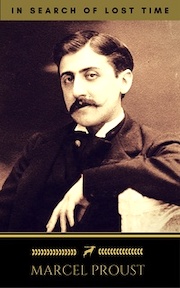 I read Proust for the first time during my last year of college and my first year or two of law school. I would buy a volume at the end of each term, when finals were finished. Quite a few years later, I set out to read In Search of Lost Time again, but I was busy and only got through the first three volumes. So I started Swann’s Way in July, and finished the seventh volume just a week or two ago.
I read Proust for the first time during my last year of college and my first year or two of law school. I would buy a volume at the end of each term, when finals were finished. Quite a few years later, I set out to read In Search of Lost Time again, but I was busy and only got through the first three volumes. So I started Swann’s Way in July, and finished the seventh volume just a week or two ago.
After all this time, I still don’t know what to make of Proust. The plot of Lost Time, to the extent there is one, is ridiculous. Key events happen offstage. The central female character, Albertine, remains almost completely opaque despite figuring prominently in five books. It is not until the fourth or fifth volume that the reader finally learns that the narrator’s name is, indeed, Marcel. It is usually hard to figure out how old the characters are intended to be, and their actions are often inappropriate for whatever ages seem most likely. There are absurd asides, like the narrator’s casual assertion that he–the neurasthenic Marcel!–has been fighting duels, with no further information or elaboration. And Proust’s own homosexuality, refracted through the eyes of his ostensibly heterosexual narrator, conveys a weirdly distorted vision of human behavior.
No matter. Proust is arguably more an essayist than a novelist, but something about his endless analyses is addictive. And his novels do allow you to live, for a time, in a foreign land and in another time, with all its virtues and faults. Do I recommend Proust? Absolutely. If you can’t stand him, you have plenty of company. But for some, if you stick with his convoluted style long enough to get used to it, he is one of the most rewarding of novelists.
If I didn’t read as much history as usual this year, it likely was because I listened to so much during my long commute, which averages more than an hour and a half per day. After a couple of years of listening to top 40 country, news talk and sports talk, I was ready to blow my brains out. So I started listening to history lectures from The Teaching Company’s Great Courses via Audible.com. It’s one of the best things I ever did. I have listened to courses (averaging maybe 24 hours apiece) on ancient history (Greece and Rome, Egypt, Alexander the Great, the Greek and Persian Wars), the early, high and late middle ages, the decline of the pagans and the rise of Christianity, the New Testament, various stages of English history up to the Victorian era and the rise and fall of the British Empire, barbarian empires of the steppes (one of my favorites), the Italian Renaissance, the Reformation, and many more.
Many people enjoy listening to books on tape. I prefer the lecture format, where it sounds like the professor is talking to you rather than reading a text. But any way you look at it, it beats listening to speculation about the NFL draft six months ahead of time.
I’m sure I missed a few, but those are most of the books I read this year. When I was a kid, I spent many hours in the Carnegie Library in my home town of Watertown, South Dakota. There was a handwritten sign on the wall that said, “Read the best books first. You may not have time to read them all.” As I get older, I often remember that injunction. There are more great books than I can possibly read in the years I have remaining. At the same time, there are many favorites that I want to re-read, and I see no reason to abandon the lighter pleasures of thrillers, crime fiction and historical novels. So many books, so little time.
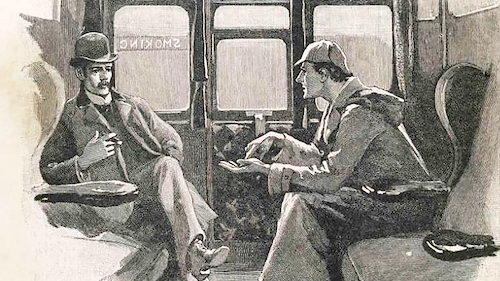
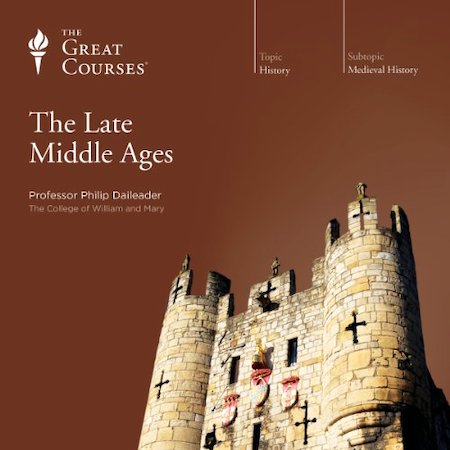
Notice: All comments are subject to moderation. Our comments are intended to be a forum for civil discourse bearing on the subject under discussion. Commenters who stray beyond the bounds of civility or employ what we deem gratuitous vulgarity in a comment — including, but not limited to, “s***,” “f***,” “a*******,” or one of their many variants — will be banned without further notice in the sole discretion of the site moderator.